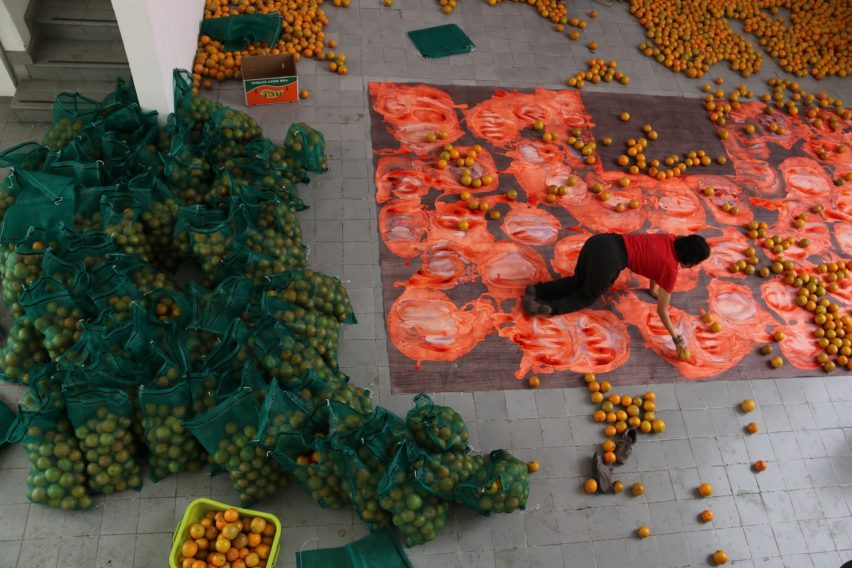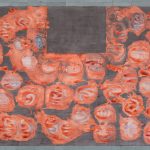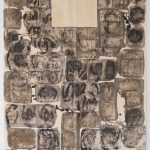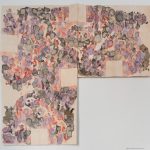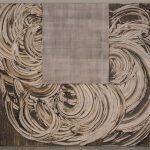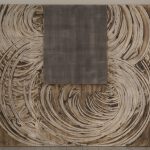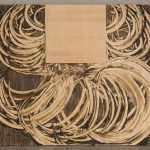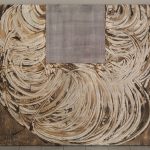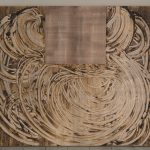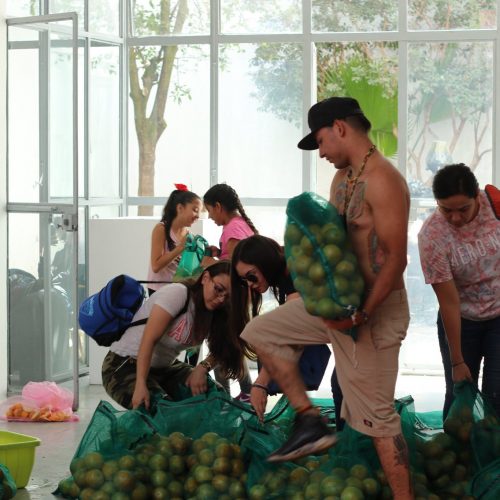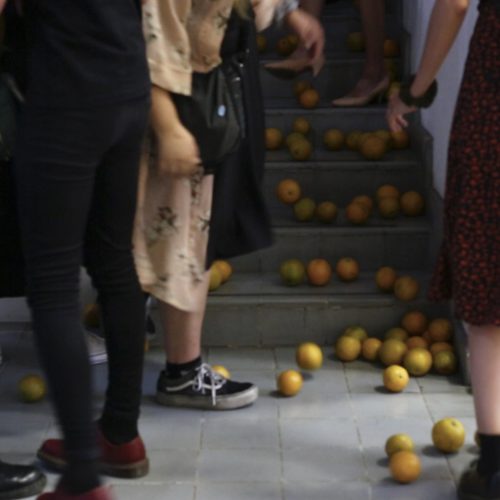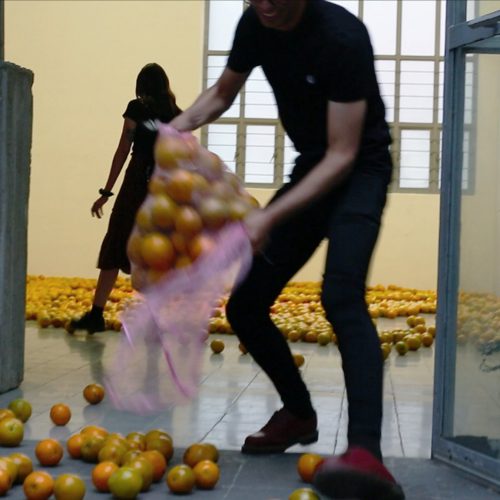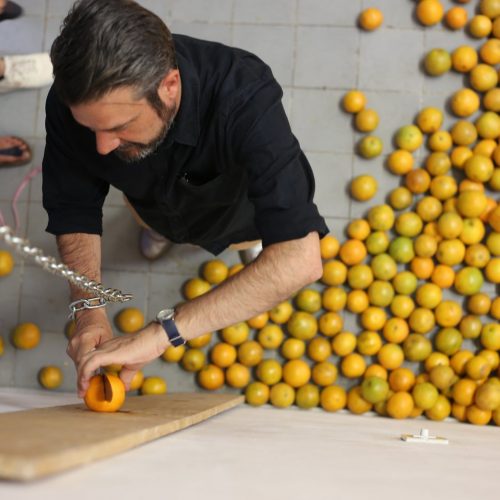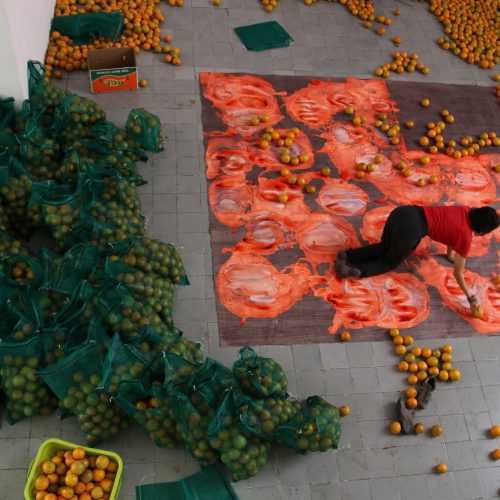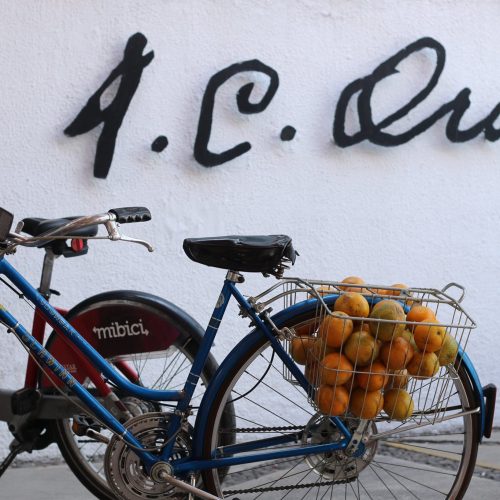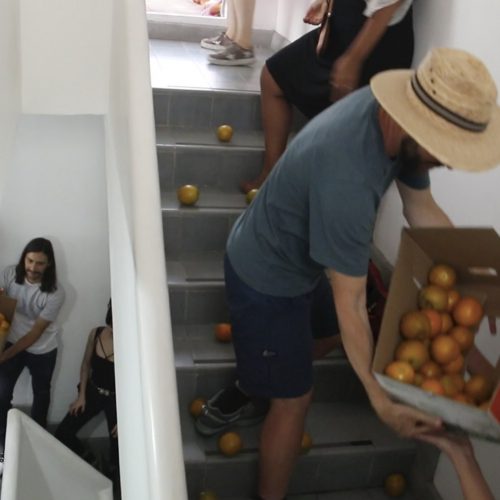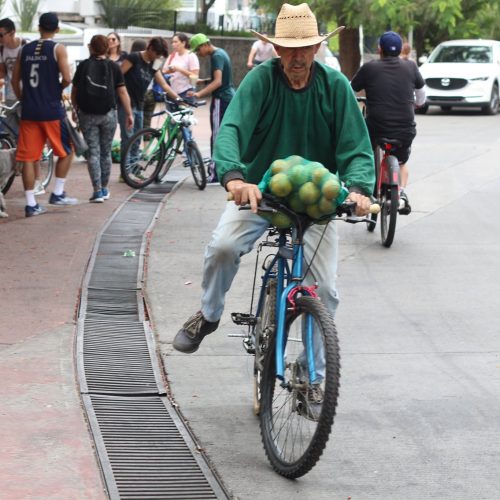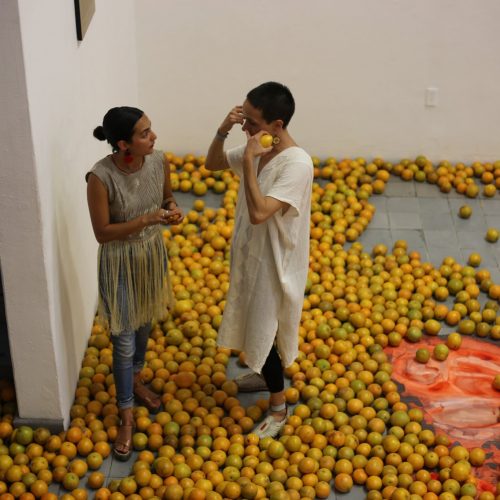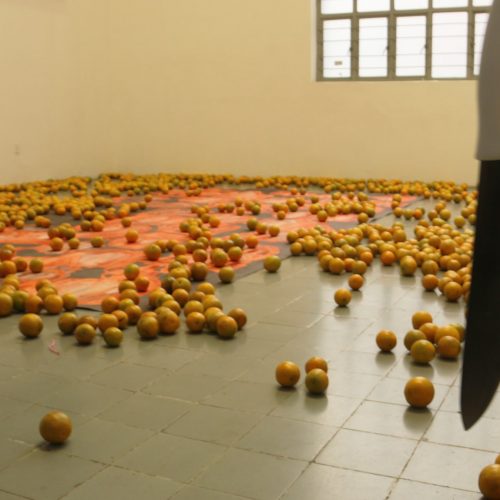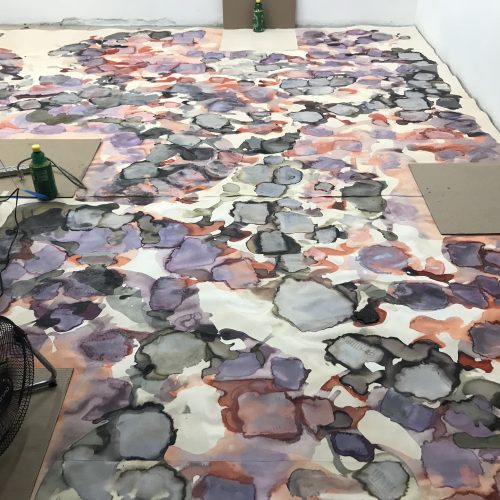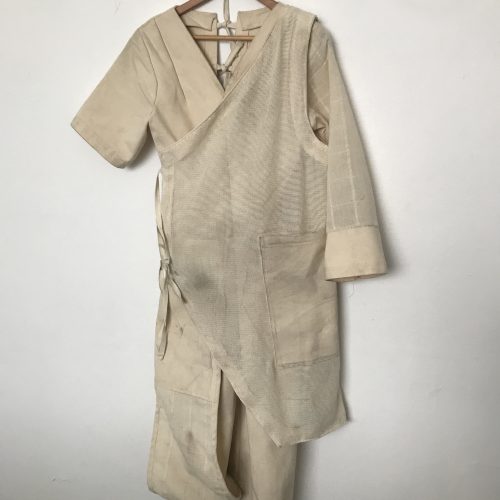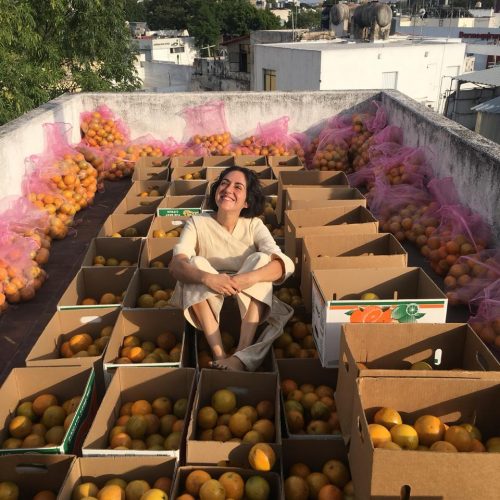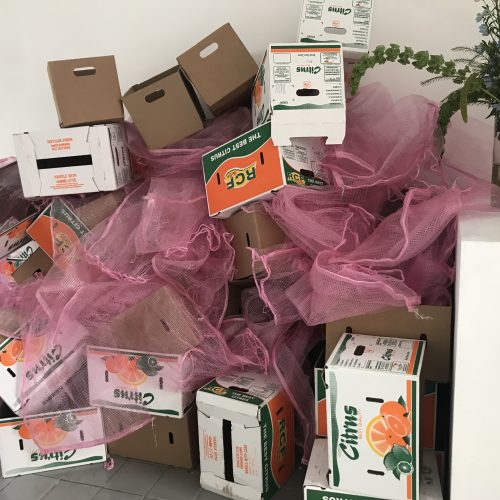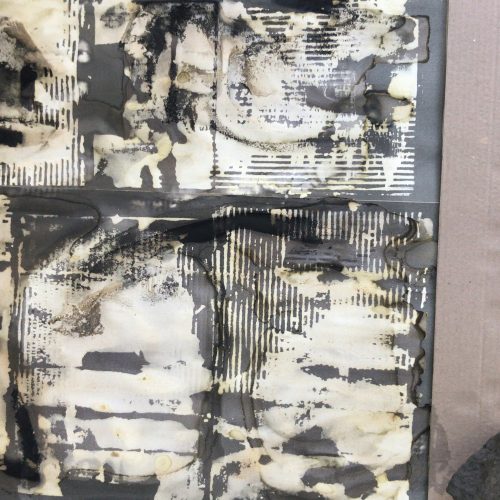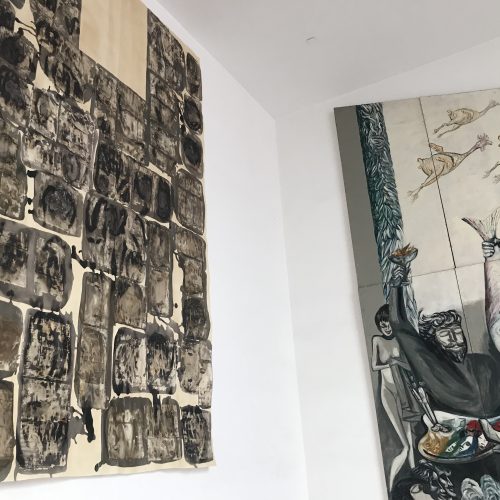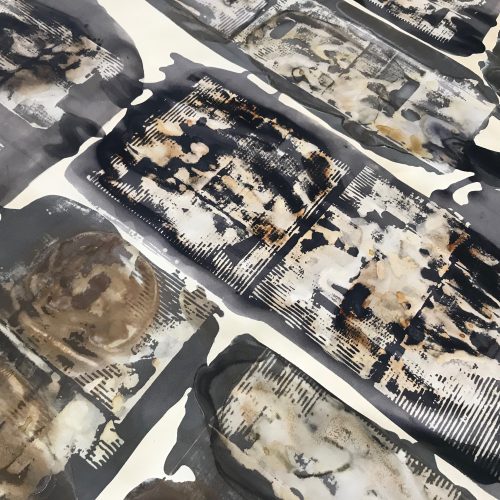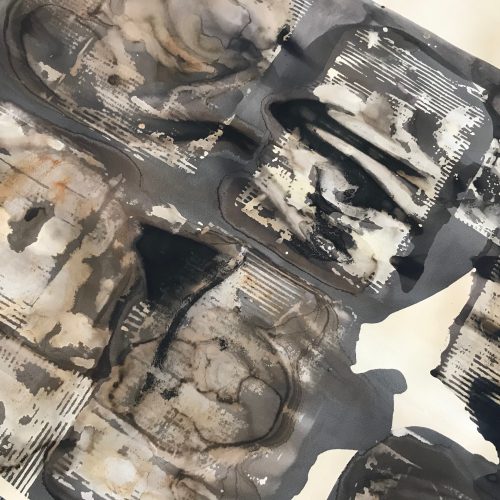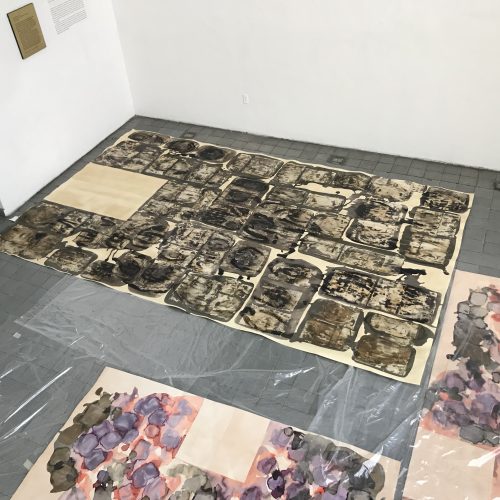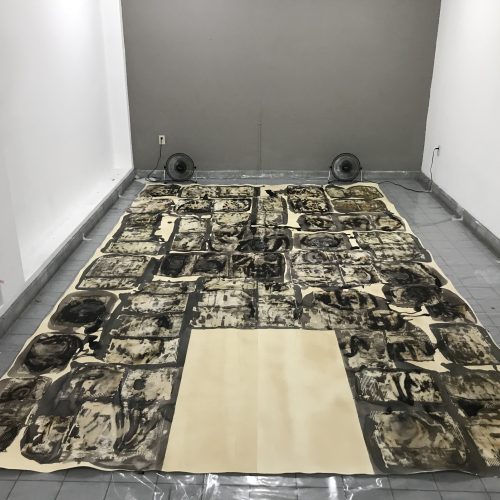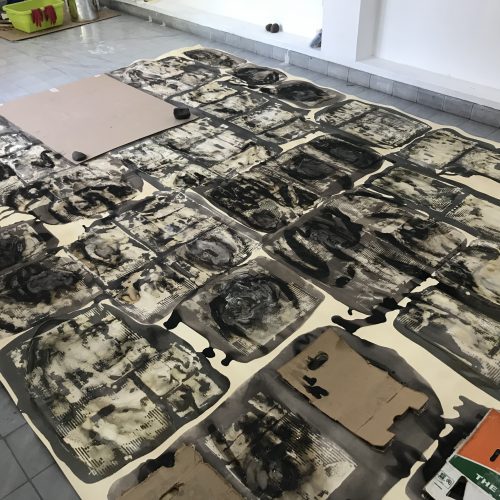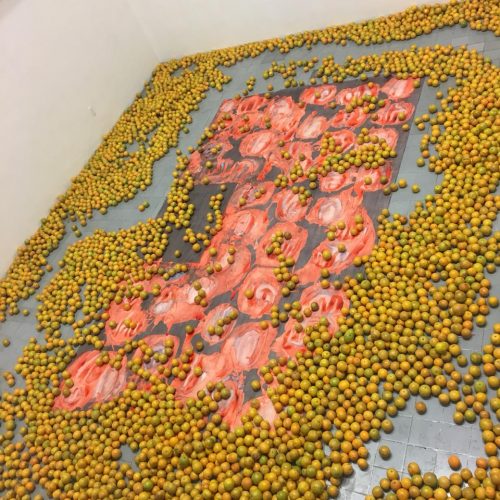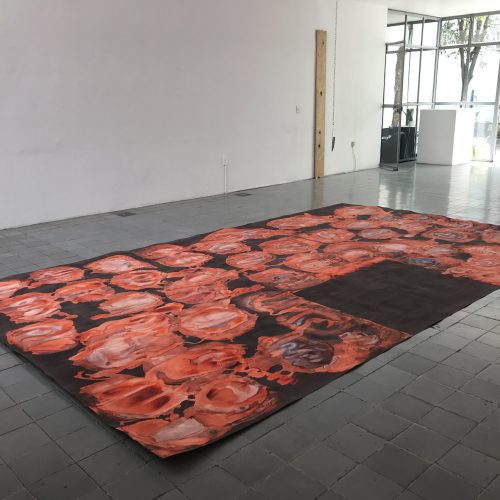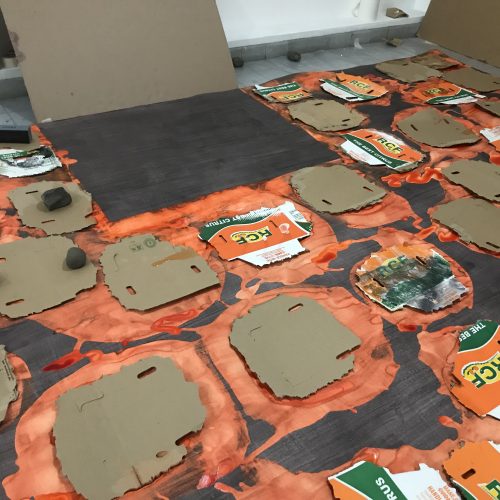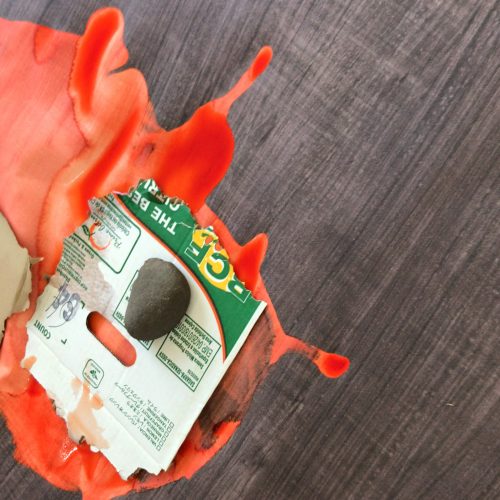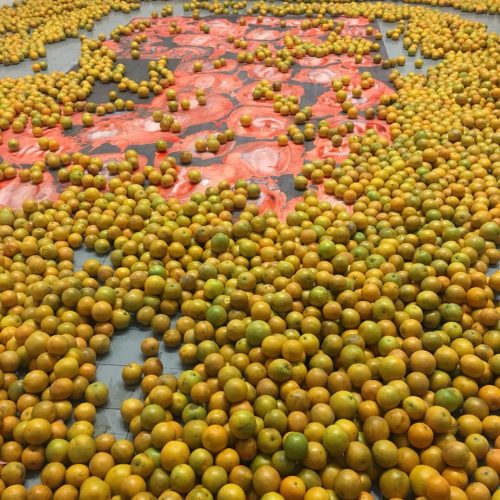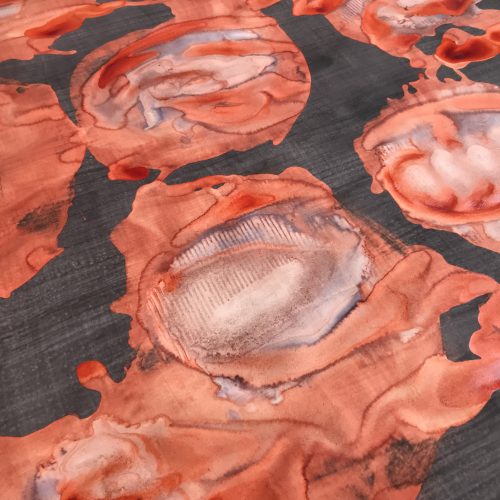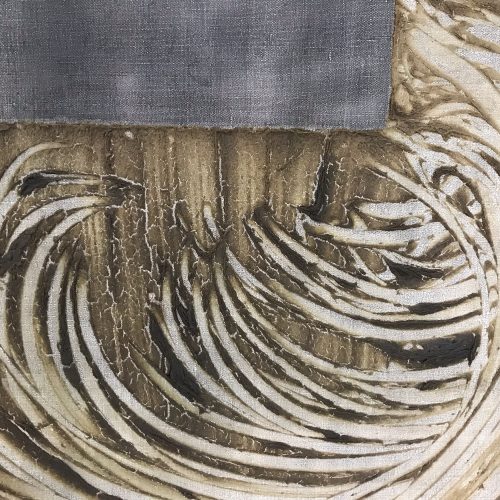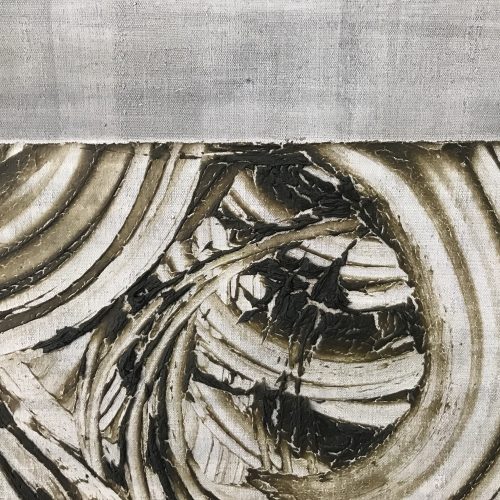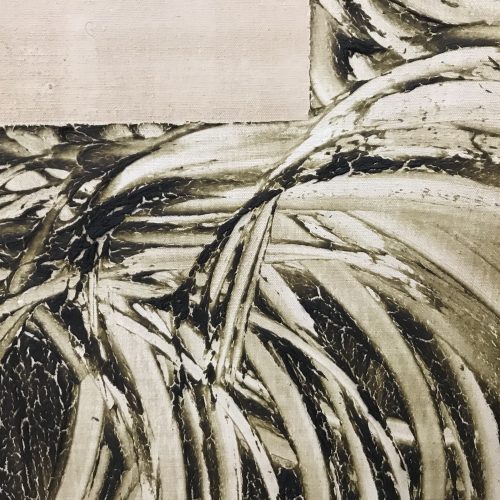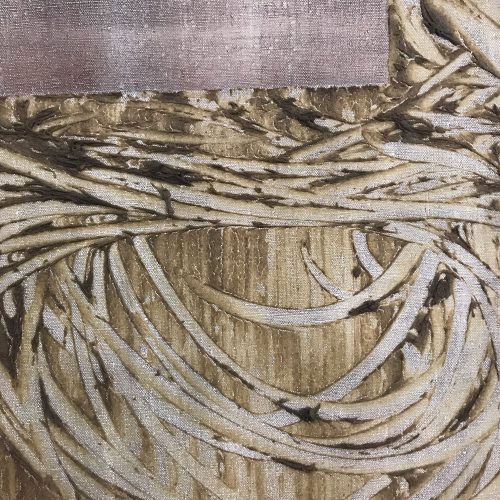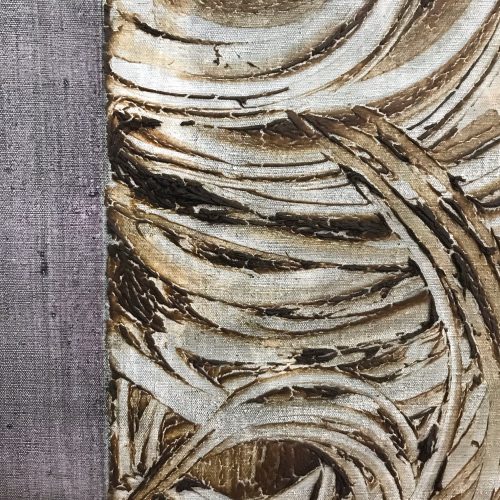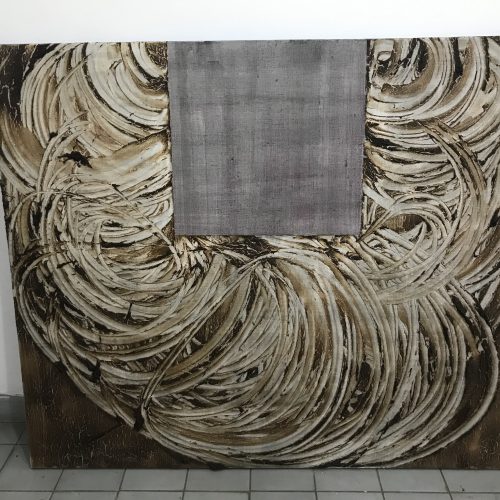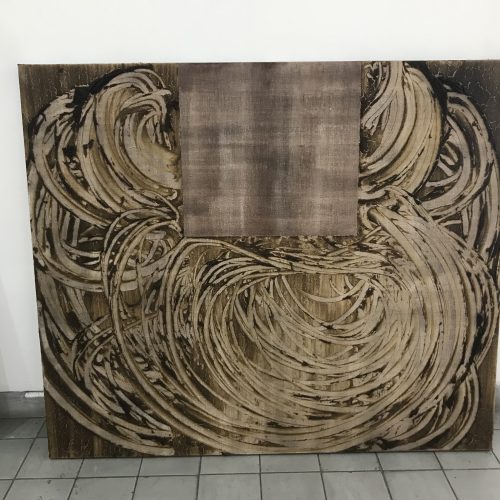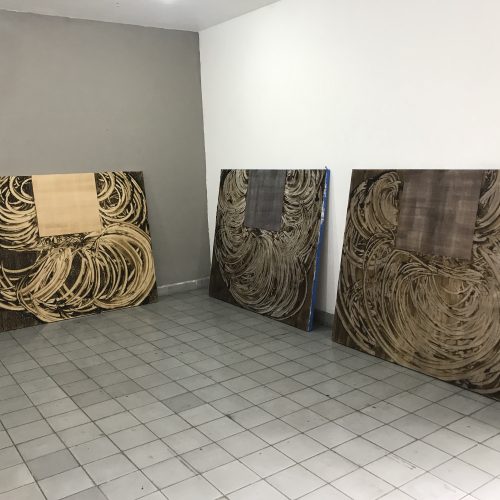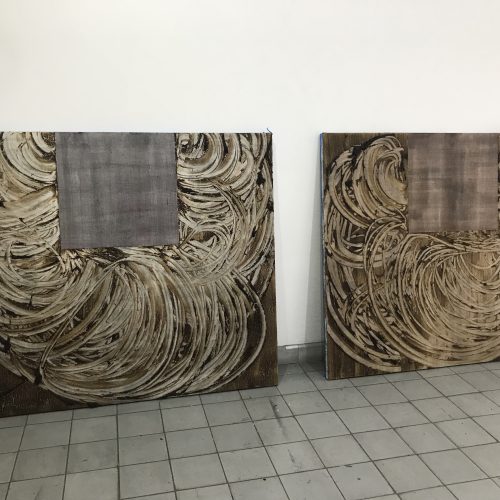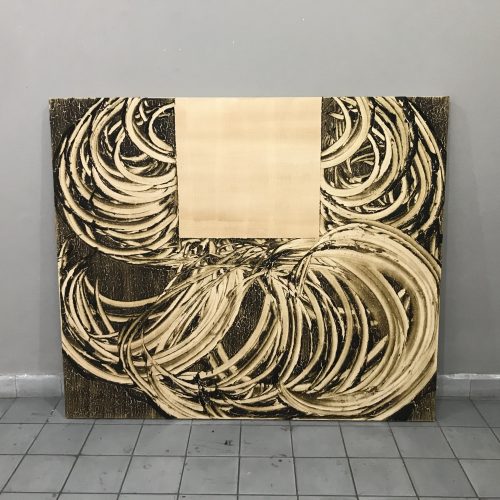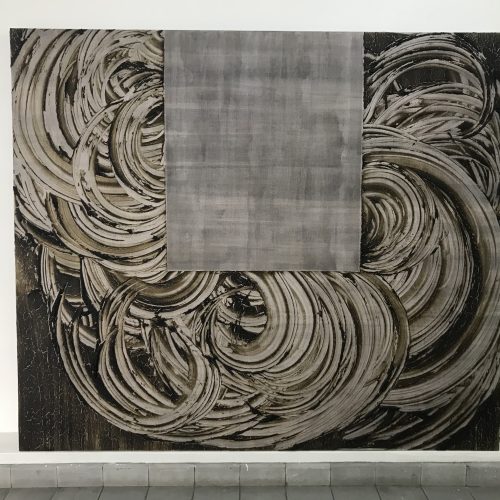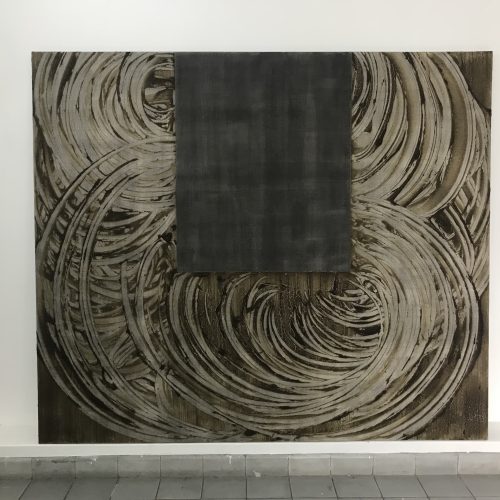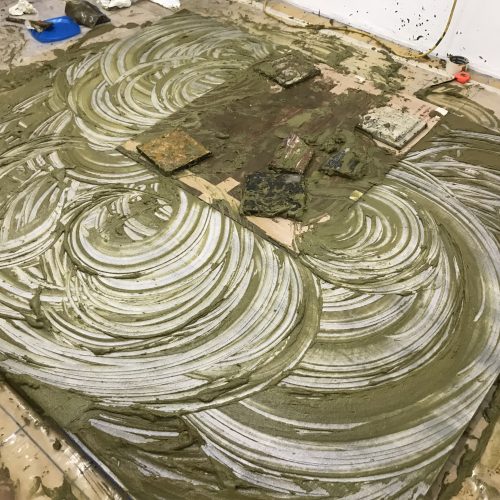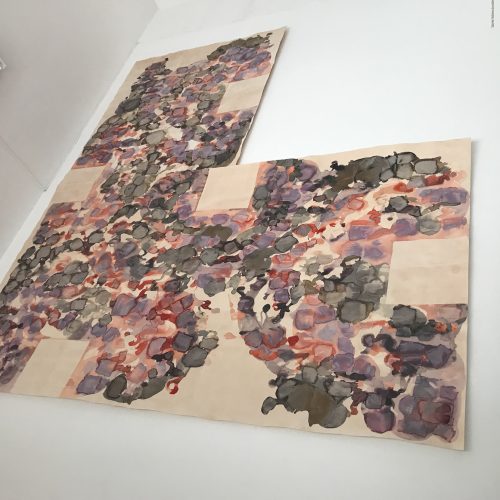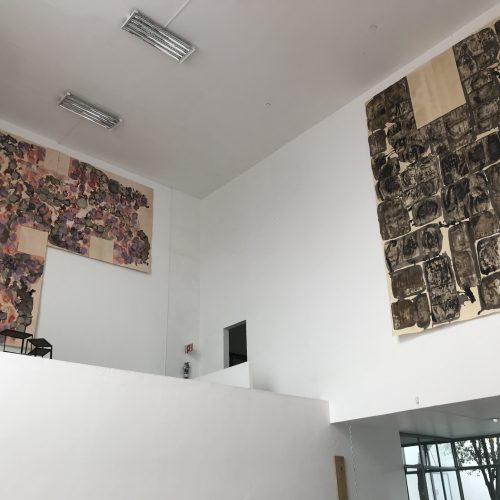Manéjese Con Cuidado
2019
MANÉJESE CON AMOR CUIDADO
PAOS GDL
27 de abril de 2019
En meses recientes la artista Carmen Argote ha realizado algunos viajes. Estos empiezan a permear en su trabajo de la misma forma en que su entendimiento de la arquitectura le ha permitido construir una red de conexiones en busca de un lenguaje propio. La obra de Argote hilvana las ciudades y los contextos geográficos en los que trabaja, tal como ha unido los espacios arquitectónicos sobre los que discierne. A partir de la construcción emergente de hábitos Argote accede a un entramado simbólico, cultural e histórico que en pocas ocasiones nos hacemos visible. Lo que aquí se presenta es el resultado de la investigación que Carmen Argote desarrolló en Guadalajara durante seis semanas de estancia, a partir de dos árboles, el guayabo y el naranjo, y de dos espacios: Taller Los Guayabos y el Museo Taller José Clemente Orozco. En este lapso temporal ambos sitios se unen a partir del común que Argote encuentra y sobre el cual gira un proceso de pensamiento que no se detiene en lo inmediato (sigue en tanto el origen orgánico, cambiante, de su obra): la contención del patio/ jardín y de lo vegetal.
Desde visitas recientes a Colombia y a Andalucía, España, Carmen Argote ha abierto una reflexión sobre nuestra relación con la producción industrial y el contenido histórico, político y económico del fruto. Utiliza extractos naturales del hueso de aguacate, de hojas de guayabo y de naranjo que al ser procesados despiden ácido tánico, tinturas que reflejan la luz de una manera distinta y variante en relación a la pintura industrial, y cochinilla, hierro, jugo de limón; materiales todos que evocan y articulan el paisaje social y natural con el que la artista se va involucrando afectiva y políticamente. Las pinturas orgánicas de Argote son inestables y configuran, más que el aspecto visual de su trabajo, el ejercicio performativo y de pensamiento en acto que la artista ejecuta como un modo de inferir en el espacio que habita. La realización de esta serie de piezas implica el uso de sus propias dimensiones como referencia, de su cuerpo como herramienta de medición del espacio de trabajo y de los formatos que este le ofrece. Coreografía que se expande en el tiempo en tanto mancha y huella. Las preguntas que Carmen Argote se hace son sobre la relación entre arquitectura, cuerpo y naturaleza, no desde el razonamiento pasivo sino desde el proceso incómodo, subversivo, de la desnudez cínica y el movimiento de su propio cuerpo como provocación.
Las pinturas que la visitante encuentra aquí prototipos personales de planos arquitectónicos que rechazan el rigor académico y se cifran en el tiempo. Patrones, huellas dérmicas, manchones que crecen y dejan el
rastro de su evolución (que miden los días y más tarde los años); estas formas construyen mapas sobre la edificación de una estructura espacial para cuestionar su proyección simbólica: el status, el privilegio, el dominio. Argote cuestiona el jardín, la naturaleza privada, como una cuestión de lujo y clase, pero también como tachadura del mundo laboral y la explotación de recursos humanos y naturales. Sugiere recordar los preciosos campos colombianos de aguacate, la naranja emblema del estado de California o de los jardines de Granada, pero también sus rutas y episodios comerciales.
La casa se convierte en una maquinaria de producción con engranajes y componentes del abastecimiento en busca de traer a la mente los procesos de explotación de los recursos naturales pero también humanos. Si lo opuesto al trabajo es el pensamiento, Carmen Argote subvierte doblemente el sistema laboral y de explotación desde la reflexión, en este caso compartida*, pero también nos pone en entredicho como testigos y parte del propio andamiaje que desde lo social y lo cultural articula las maquinarias de sujeción y control, producción, compra- venta, consumo y demanda, transaccion simbólica y financiera.
Manéjese con Amor Cuidado es una afectuosa recomendación para encontrar las rios subyacientes de contenido político y simbólico en el transitar de un espacio arquitectónico, de un entorno laboral, o del paisaje, pero también una advertencia.
*
Este proyecto se ha realizado en colaboración con creadoras Larissa Garza y Viviana Gutiérrez, y gracias al apoyo de Taller Los Guayabos.
LPB. 240419
HANDLE WITH LOVE CARE
PAOS GDL
April 27, 2019
In recent months the artist Carmen Argote has made some trips. They begin to permeate their work in the same way that their understanding of architecture has allowed them to build a network of connections in search of their own language. The work of Argote weaves the cities and the geographical contexts in which it works, just as it has united the architectural spaces on which it discerns. From the emerging construction of habits, Argote has access to a symbolic, cultural and historical framework that we rarely make visible. What is presented here is the result of the research that Carmen Argote developed in Guadalajara during six weeks of stay, from two trees, the guava and the orange tree, and two spaces: Taller Los Guayabos and the José Clemente Orozco Workshop Museum . In this time lapse both sites are united from the common that Argote finds and on which revolves a thought process that does not stop in the immediate (it continues in as much the organic, changing origin of his work): the containment of the patio / garden and vegetable.
From recent visits to Colombia and Andalusia, Spain, Carmen Argote has opened a reflection on our relationship with industrial production and the historical, political and economic content of the fruit. It uses natural extracts of avocado, guava and orange leaves that, when processed, give off tannic acid, tinctures that reflect light in a different and different way in relation to industrial paint, and cochineal, iron, lemon juice; materials all that evoke and articulate the social and natural landscape with which the artist becomes emotionally and politically involved. Argote’s organic paintings are unstable and configure, more than the visual aspect of her work, the performative and thought-act exercise that the artist executes as a way of inferring in the space she inhabits. The realization of this series of pieces involves the use of its own dimensions as a reference, of your body as a tool for measuring the workspace and the formats it offers. Choreography that expands over time in both stain and footprint. The questions that Carmen Argote asks are about the relationship between architecture, body and nature, not from passive reasoning but from the uncomfortable, subversive process of cynical nudity and the movement of her own body as a provocation.
The paintings that the visitor finds here are personal prototypes of architectonic plans that reject academic rigor and are based on time. Patterns, skin tracks, patches that grow and leave the
trace of its evolution (which measure the days and later the years); these forms build maps on the construction of a spatial structure to question its symbolic projection: status, privilege, dominion. Argote questions the garden, private nature, as a matter of luxury and class, but also as a crossing out of the working world and the exploitation of human and natural resources. It suggests remembering the beautiful Colombian avocado fields, the orange emblem of the state of California or the gardens of Granada, but also its commercial routes and episodes.
The house becomes a production machinery with gears and components of the supply in search of bringing to mind the processes of exploitation of natural resources but also human. If thought is the opposite of work, Carmen Argote doubly subverts the labor and exploitation system from reflection, in this shared case *, but also puts us into question as witnesses and part of the scaffolding that articulates socially and culturally the machinery of subjection and control, production, purchase-sale, consumption and demand, symbolic and financial transaction.
Handle with Love Care is an affectionate recommendation to find the underlying rivers of political and symbolic content in the transit of an architectural space, a work environment, or the landscape, but also a warning.
*
This project has been carried out in collaboration with creators Larissa Garza and Viviana Gutiérrez, and thanks to the support of Taller Los Guayabos.
LPB. 240419
